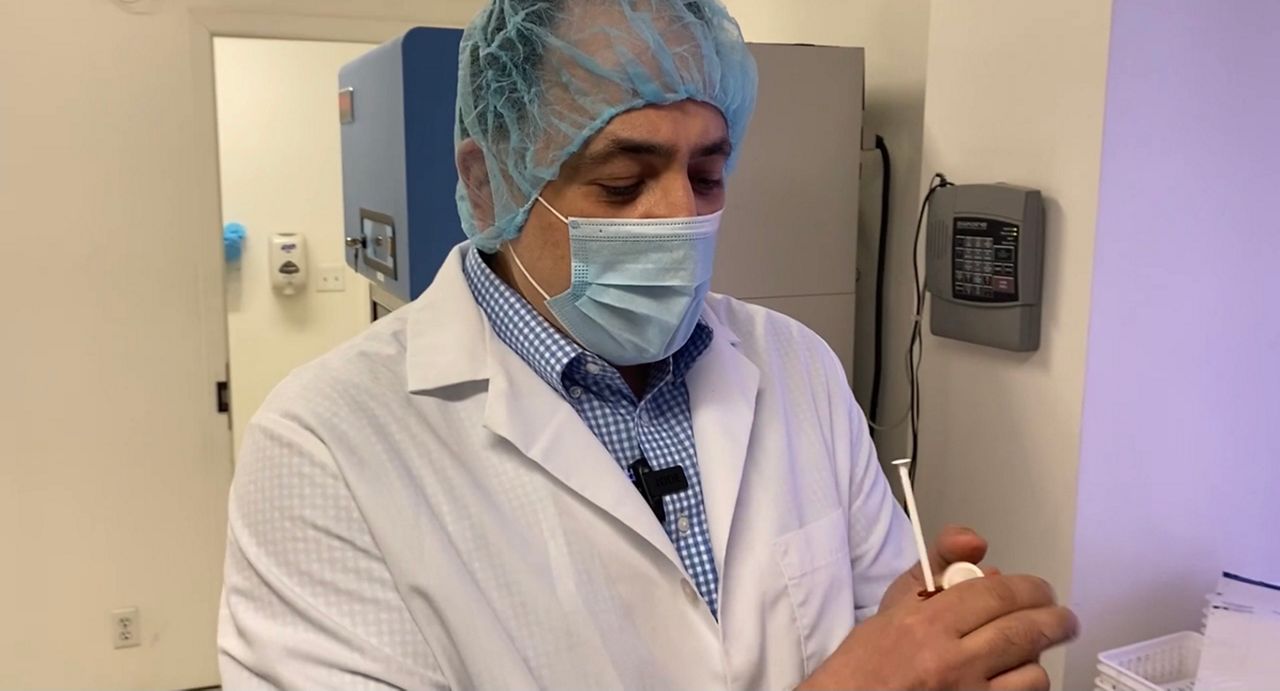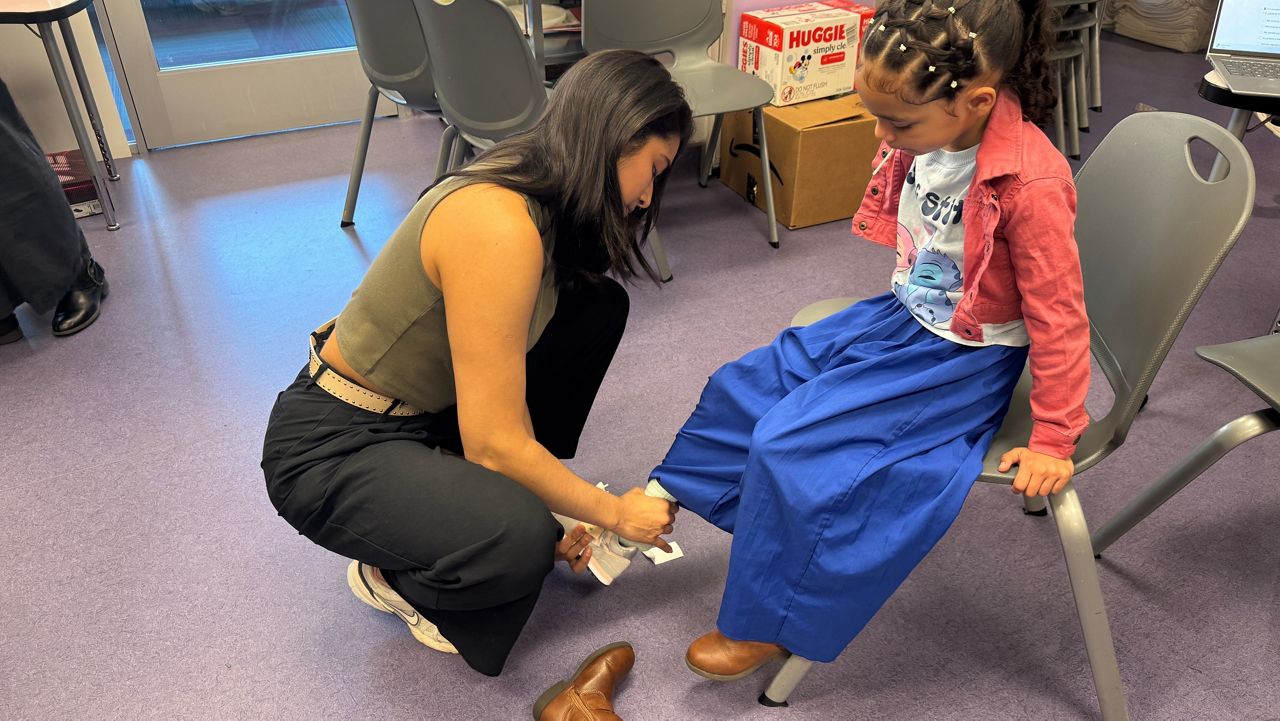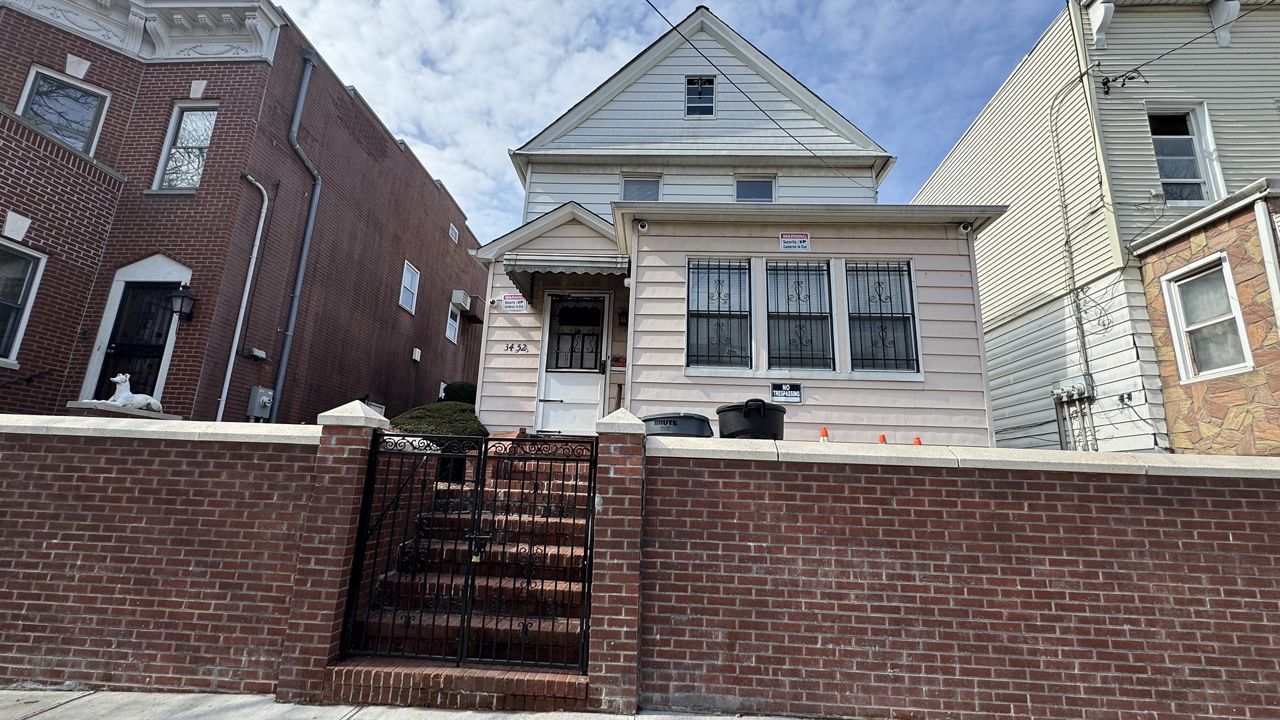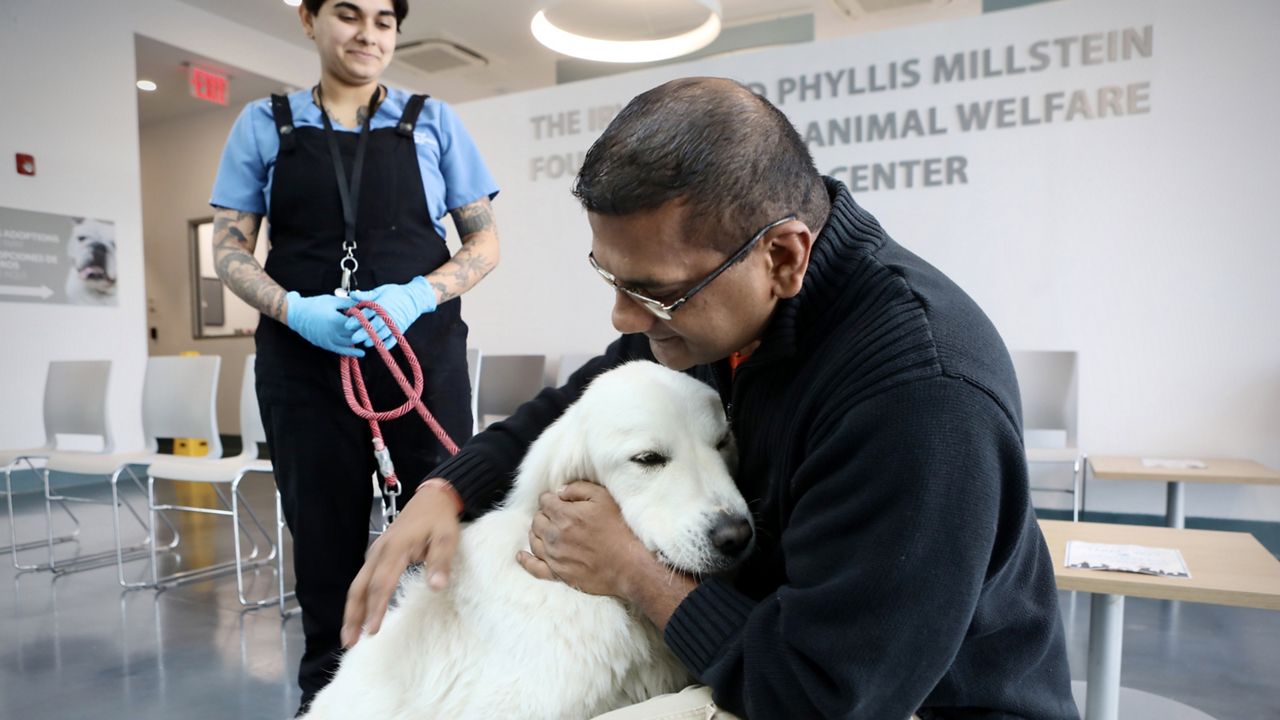NEW YORK - 12-year-old Sophie, a Boston Terrier and boxer mix, still enjoys playing fetch and going on walks, thanks to modern medicine.
In December, she was diagnosed with a life-threatening heart condition but was prescribed a medication that regulates the issue.
The only problem has been finding that medication because it is one of a number of pet prescriptions that are in short supply.
What You Need To Know
- According to the website for the U.S. Food and Drug Administration, the FDA has been tracking an animal drug shortage during the pandemic since May 2020
- Sam Abdrabouh, the owner and CEO of Wespaw Pets and Wespaw Pets Pharmacy, told NY1 that he’s seen an increase in demand at the pharmacy during the pandemic
- Abdrabouh has attributed this, in part, to certain medications being backordered and supply chain issues during the pandemic
- The Pet Food Institute said that pet owners who are worried about possible shortages should always have at least two weeks of supply on hand
According to the website for the U.S. Food and Drug Administration, the FDA has been tracking an animal drug shortage during the pandemic since May 2020.
Depending on what medication a pet owner is looking for, a person can spend hours searching online and not find a single online retailer that has what they are looking for.
There are quite a few New York City pet owners in that position that end up on the phone with one of the staff members at Wespaw Pet Pharmacy in Queens.
They are a compounding pharmacy and can give their pet patients exactly what they need.
In some cases, that includes the prescriptions some of the national chains can’t seem to keep stocked at the moment.
“There’s a lot of medications that just aren’t in the market,” said Sam Abdrabouh, the Owner and CEO of Wespaw Pets and Wespaw Pets Pharmacy. “They are either backordered or there might be a supply chain issue. COVID unfortunately affects everybody, whether it’s food or it’s medicine.“

Abdrabouh who is also one of the pet pharmacists filling prescriptions behind the scenes told NY1 that he estimates his business at the pharmacy has quadrupled since the pandemic began.
He attributes this increase, in part, to how specialized their product is.
“The doctor will call us to prepare a formulation that’s suited for your pet’s specific needs,” said Abdrabouh. “We will do the formulation to the specific dose and make it into the smallest possible capsule based on the drug concentration.”
Not all pet medications are in short supply and sometimes where they are produced is what has an impact on any supply chain issues.
For example, if production is in a country that’s currently under lockdown, then there will likely be supply chain issues.
Over at the Animal Medical Center in Manhattan, they’re seeing another shortage pop up in recent weeks.

“It came to the point last week that we notified our clients that there are shortages in prescription pet foods and that they really needed to plan ahead,” said Dr. Ann Hohenhaus, a veterinarian at Animal Medical Center.
In the case of pet food shortages, there are a number of COVID-19 issues at play, including a rise in pet adoptions and an increase in new family pets.
The phenomenon has actually given rise to a new term pandemic puppy or pandemic pet.
Now, with more animals at home, there’s greater demand for pet food.
For veterinarians at AMC, it’s the lack of certain prescription pet foods that’s troubling.
“Right now, one of the foods for pets with kidney disease is on terrible backorder and clients are having a really horrible time trying to get it,” Dr. Hohenhaus said. “Clients are really having a hard time getting it anywhere.”
The Pet Food Institute, a trade group representing many of the pet food manufacturers in the United States, said that pet owners who are worried about possible shortages should always have at least two weeks of supply on hand.






_CG_DNT_Lunar_New_Year_Flushing)
